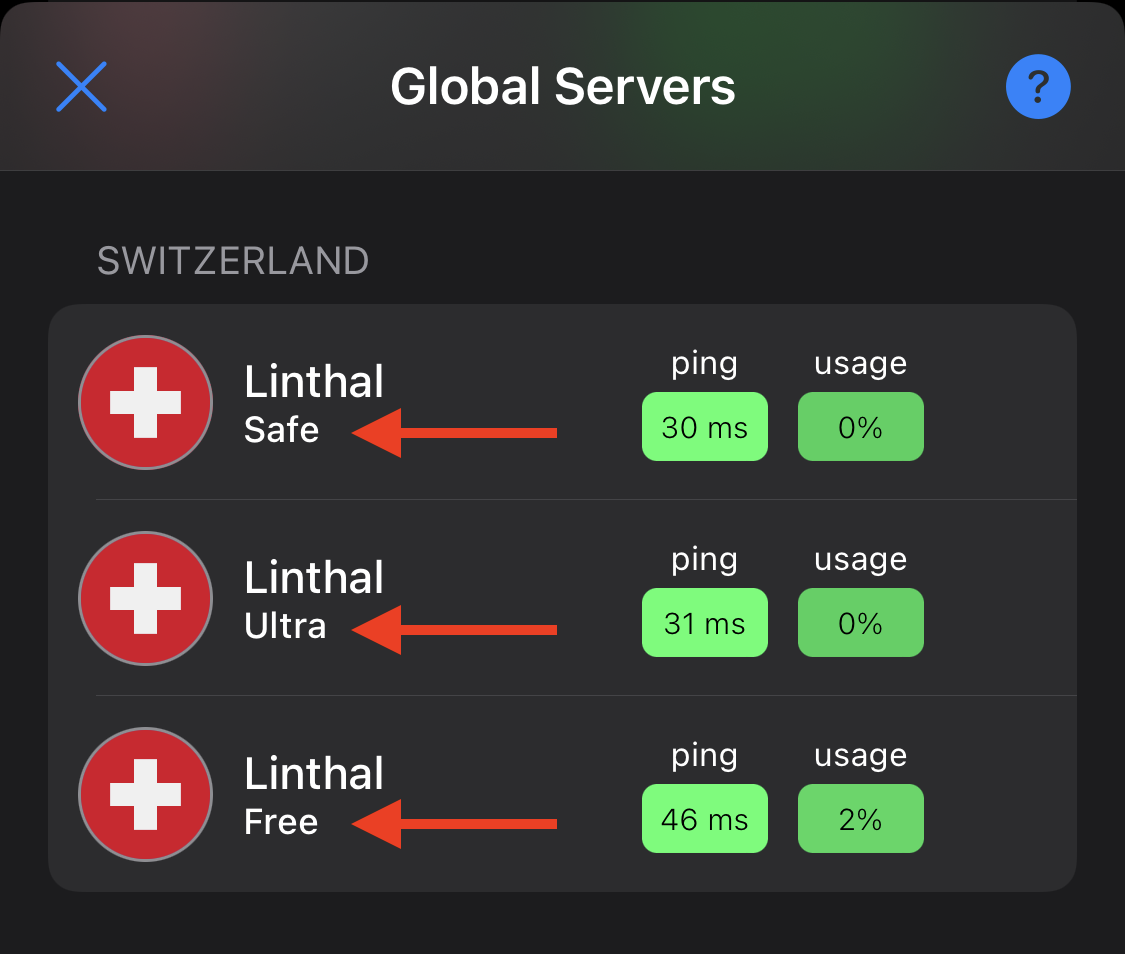How Tegant VPN Overcame Emirates Censorship in the UAE

Providing a VPN service is never dull. In fact, it’s a cat and mouse game between repressive governments who are constantly trying to block access to VPN services and the VPN company that responds by attempting to circumvent the particular government’s censorship.
On 7th July 2020, Emirates Telecommunication banned our VPN on their home broadband packages. Naturally, this was a big disappointment for our 53,000 users in the United Arab Emirates.
The following days were very stressful for us as we investigated just what we could do to resolve the matter. Over several weeks, with the help and assistance of local volunteers, we ran tests until we finally found a solution. We developed a prototype that utilises an alternative VPN technology. This technology encrypts the initial handshake between the client and server. Then we altered the handshake pattern in order to reduce the attack surface to our services from malicious clients. The result far exceeded our expectations. Our prototype worked successfully in the UAE.
After seven weeks of development, we put our prototype into production and circumvented the blockage entirely. We named it the Safe-Mode. Our customers in the UAE cheered with joy when they heard the news.
However, always on the lookout for ways in which to stay in front, we didn’t stop there. We were a new start-up and wanted to be known as the best VPN on the market. So, we continued improving Tegant VPN and iterated on the codebase. We reworked the entire app from the ground up by changing the underlying infrastructure.
The Empire Strikes Back
Everything was going well until a year later on 26th June 2021. On the morning of that day, we received the first reports that users from UAE with 4G connections were no longer able to connect to our Safe-Mode VPN.
Our outstanding work had prevented Emirates Telecommunication from blocking our modified VPN servers, so instead, they blocked access to our central API. The central API is responsible for giving permission to all clients before they can access the VPN servers. It was a clever move. They had achieved it by preventing the DNS resolution of our API, so that our clients couldn’t reach it. We countered this by diverting the DNS resolution to Cloudflare - one of the world’s largest cloud infrastructures - and our VPN began working again… but only for one day.
The next day we received the news that Emirates Telecommunication had gone even further by blocking Tegant’s entire top-level domains (TLDs). It was obvious that they were trying to do everything they could to hinder our service.

Following an emergency meeting, we concluded that we had to anonymise our API in order to cover our tracks. We created a new API proxy in an undefined country. Then we released an emergency patch so that our VPN clients could connect to our new API proxy instead. This way, our API is never directly accessed by any device. The result was simply amazing: Tegant VPN was once again operational in the UAE!
For a short while…
Just when we thought we were done with this chapter, we started getting reports in the autumn of 2021 that Safe-Mode’s speed was slowing down occasionally in the UAE. Once again, government interference was trying directly to target our services. The only workaround in this case was to disconnect and keep trying to reconnect again until the situation had cleared up. We knew that the Safe-Mode VPN couldn’t be blocked this time around, but they had figured out the internet packet signatures to slow them down on their network.
We could solve this by regularly altering the encryption of our VPN and hiding the tracks again. (And we did that too in Tegant 8.0, in which the Safe-Mode has been operational again in the UAE as of Jan 2022) However, this wasn’t good enough for us. It was time to strike back with something new.
Return of the Jedi Tegant!
Once again, we began working on an alternative VPN protocol called Wireguard. Wireguard is one of the latest and most modern VPN technologies. It was not until 2020 that it was officially verified as production-ready.
Wireguard is fairly difficult to implement for VPN companies. This is due to certain challenges it presents with user access management. It is for this reason that most of the renowned VPN companies don’t yet provide Wireguard protocol and stick to classic protocols instead. We, however, accepted the challenge and have developed the missing components to make this a viable solution for us.
During our tests, we were surprised by how well Wireguard works. For example, if you were based in the UK and wanted to connect to Australia via the Safe-Mode, you wouldn’t be able to achieve it reliably. However, via the Ultra-Mode the connection can be established in less than two seconds. In terms of speed, Wireguard was able to score also better than the Safe-Mode.
This is why we named this new mode the Ultra-Mode. It was the perfect addition to our anti-censorship toolkit and once again our users in UAE can rejoice.

Is Using VPN Illegal?
The interesting part is that accessing a VPN is not illegal in the UAE, as long as nobody is using Voice over IP (VoIP) via the VPN. In other words, the powers-that-be in the UAE want to eavesdrop on private conversations and using a VPN would stop them from doing that. Only VoIP services that have been registered with the Telecommunications Regulatory Authority (TRA) are allowed to operate in the UAE. Therefore, WhatsApp and Skype are both banned, because the respective companies refuse to register with them.
UAE has expensive homemade VoIP services such as du’s internet calling pack for Dh100 ($27) per month, which gives its users access to YzerChat and BOTIM to get unlimited access to video calls and voice calls. However, as you can imagine, it is likely that these apps are being monitored. This is no different to the situation in China, where all VPN companies have to be registered with the Chinese government. Those that don’t are banned.
We know for a fact that many other famous VPN companies operate under similar difficulties in the UAE and China, however, they have given up on their users because the government relentlessly pursues and tries to close down these VPN services. Hence, it is not just the fancy technology that defines the best VPN on the market, but the company standing behind it. We - Tegant VPN - have never given up on our users and we assure all our customers that we will always strive to find workarounds to give them free access to the internet. Not every VPN provider is willing to do what it takes to remain operational, but that is exactly what Tegant VPN has done and will always seek to do.
How about Western countries?
Even in our so called ‘western countries’, in which you would expect to find freedom of expression, total privacy is not always guaranteed. On 3rd April 2017, President Trump signed a law to repeal the Federal Communications Commission’s (FCC) privacy rules. This meant that Internet service providers in the USA are legally allowed to collect and sell their customers’ browsing habits to third party companies. These companies could potentially use this data to create a personalised and targeted advertisement. They can see what websites you have visited, what you have searched for, what you have liked or disliked.
You may have noticed that when you google for a product, shortly after you start noticing advertisements selling that product on unrelated platforms such as Facebook or YouTube. This is social engineering, in which the same kinds of ads are engineered toward your interests and repeated until you give in and make a purchase. Netflix has made an extraordinary documentary on that, in which ex-employees from Facebook or Google came out to speak about their privacy concerns.
In times like these, in which all major technology giants such as Google, Facebook and YouTube track your every move, it remains important to protect your privacy by preventing them from tracking you. This is where Tegant VPN excels and can protect you.
We provide three types of VPN to cover several needs:

The Free-Mode *
The Free-Mode is more mobile-friendly, since it switches more easily between Wi-Fi and 4G/5G. It also works better on older iPhones, since it requires less CPU power to uphold the connection. This leads to higher transfer rates than the other mode. However, the downside of Free-Mode is that it is not always well suited against the deep packet inspections of various Internet Service Providers or government agencies. The connection remains encrypted and nobody can see what you are doing, but the signature of the packets reveals that you are using a VPN.
This could be reason enough for restrictive governments or internet service providers to block your internet connection. From their point of view, it is a pre-emptive strike, just in case you were doing something through the VPN that they didn’t agree with. This is always the case with the Chinese Great Firewall, which is running sophisticated deep packet inspections to check if any of its citizens are utilising a VPN. Even though they can’t see what the citizen might be doing through the VPN, they either slow down the VPN traffic to a halt or block it entirely if they can identify the signature.
- The Free-Mode (IKEv2) was removed in 2022 and has been replaced with the same protocol as the Ultra-Mode, however it comes with certain restrictions such as limited server locations and slower connection speeds.
The Safe-Mode
The Safe-Mode was introduced in response to the blockage of our VPN by the UAE in July 2020. The Safe-Mode is a different VPN technology with more complex encryption that requires both power-hungry servers as well as faster iOS devices connecting to it. This leads to lower transfer rates than compared to the Free-Mode and Ultra-Mode. The Safe-Mode might be also better suited for use within the same network. For example, try not to switch your network from Wi-Fi to 4G/5G or vice-versa, but instead try to remain within the same network. The up-side of the Safe-Mode, however, is the superior connectivity and invisibility. The Safe-Mode doesn’t leave any footprints behind and therefore it is much harder for the Internet Service Provider to identify that somebody is using a VPN when Safe-Mode is activated.
The Ultra-Mode
The Ultra-Mode was introduced in response to the slowing-down of Safe-Mode by the UAE’s government in Autumn 2021. The Ultra-Mode is the most modern VPN technology and excels in both connectivity, reliability and speed. The Ultra-Mode proves to have more reliable hand-shake connectivity than Safe-Mode. Last but not least, the Ultra-Mode is ideal for watching videos from streaming providers, which aren’t available in your country.
To switch between the three modes, simply tap on the country flag on the main screen, then select a server that corresponds to your desired VPN mode as shown on the screenshot below:

Tegant VPN currently ranks in the Top 10 in the UAE, UK and USA. We remain committed to becoming the best VPN in the market. We always love to hear your feedback and improve our product as much as we can. You can reach us at: [email protected].
We hope you enjoyed this article. We would appreciate it if you could share it or link back to it from your website.